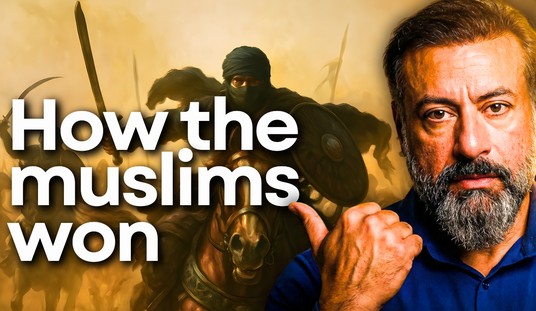Colby Cosh writes:
Once again, Cosh’s Law of Newspaper Ombudsmen holds true: we are supposed to believe they exist to defend the interests of the reader against those of the newspaper, but their actual job is precisely the opposite.
Just as the actual job of a newspaper such as the Times is precisely the opposite of its advertised purpose, as the non-coverage of that scandals enveloping the man — what was his name? — prior to his being let go by the Obama administration demonstrates.
About which, Roger L. Simon adds:
But what fascinates in the Times/Broder article is the role of Glenn Beck: Chief among those keeping the story alive was Glenn Beck, the conservative host of a Fox News Channel program. Mr. Beck began criticizing Mr. Jones in July, first in segments on his syndicated talk radio show and then, on July 23, on his Fox News program, said Christopher Balfe, the president of Mr. Beck’s production company.
There’s some reference to Beck’s advertising woes (a subject with which the Times should be familiar) due to Beck’s having called Obama a “racist.” But the substance is that Beck got the scoop. His numbers are going up and NYT’s continue to go down as the Newspaper of Record searches for a new economic model.
Part of the reason for this is pretty obvious. People trust Beck and they don’t trust the NYT. Beck may be biased, but he’s honest about it. The NYT persists in the illusion of even-handed reporting, even when, in a case like the Van Jones scandal, they clearly decided not to run the story for political reasons, but don’t have the cojones to admit it. Or is there another reason? We’re waiting.
The Times’ previous ombudsman was actually surprisingly honest about his paper’s ideological mindset. But naturally, such honesty has an all-too-brief shelf life in the Gray Lady’s pantry. These days, the Times doesn’t consider itself biased. Instead, it’s calling itself “urban modern”, as Billy Hallowell writes at Big Hollywood:
Last week, Gerald Marzorati, editor of The New York Times Magazine (a lifestyle magazine insert published by none other than the infamously left-leaning New York Times Co.) publicly answered a wide array of questions about the economy’s affect on the magazine, “the future of long-form journalism,” the magazine’s music coverage and ideological perspective, among other related subjects.
While the Q&A was nothing spectacular, a question about ideological perspective stands out from the rest. A reader identified as “Ron Mwangaguhunga” wrote:
“The New York Times Magazine, I’ve been told by a former editor, considers itself “centrist” — playing stories straight down the center. Any comment?”
Before I go any further, let it be stated that there is nothing centrist about The New York Times, so to expect that one of its Sunday supplements would be produced in journalism’s traditional middle-of-the-road sentiment is practically nonsensical. But, I digress.
While I do need to give props to Marzorati for publicly addressing the question, rather than tucking it away and ignoring its tenants, it’s important to pay attention to his response:
“Interesting. What you’re asking is: Does the Magazine have an ideology? At the risk of giving some of my colleagues hives, I think it does.”
Upon first reading this, I was jubilant! Finally, someone at The New York Times Co. admits that there is some form of inherent bias present in its reporting. But, my joy was quickly impeded by the Times’ own irrationality as I read on. Marzorati continued,
“Call it Urban Modern. That is, I think it reflects not a left-or-right POLITICAL ideology but a geographical one, the mentality of the place it is created: 21st Century Manhattan.”
Wait, what? Can anyone identify what “Urban Modern” means? I’m pretty sure most rational Americans would associate this ideological umbrella term with “liberalism.” Furthermore, if there wasn’t some sort of socio-political attachment inherently present in the term itself, why would Marzorati risk giving his colleagues “hives”? Ask anyone living in 21st Century Manhattan (or anyone with a base idea of what it’s like to be a conservative living in the greater-New York area) and they’ll tell you that the social and political spheres (i.e. “the basic mentality”) are dominated by liberalism.
While Marzorati’s willingness to share perspective with America is surely delightful, his inability to recognize his outlets overt ideological vice and his refusal to acknowledge disparity in the outlet’s overall coverage is less than appealing. This is reflective of the fact that those journalists, whether they cover entertainment or politics, living in the New York area don’t even recognize the political and social slant under and through which they live – and subsequently write.
If The Times Magazine wants to cover lifestyle through a liberal lens, that’s fine. But, the editor should at least understand and properly convey the magazine’s bias. It’s time for entertainment and lifestyle outlets to acknowledge their slant. Whether they choose to include the nation’s majority political perspective (conservatism) in editorial discussions is up to them. Either way, admitting that they have a problem is the first step toward recovery.
Well, until the next ombudsman or editor kicks those problems back under the urban modern sofa.
Update: Not surprisingly, Stacy McCain, scourge of Urban Moderns everywhere urban, has plenty of fun with Marzorati’s nonsensical neologism: “You Might Be ‘Urban Modern’ If . . .”










Join the conversation as a VIP Member